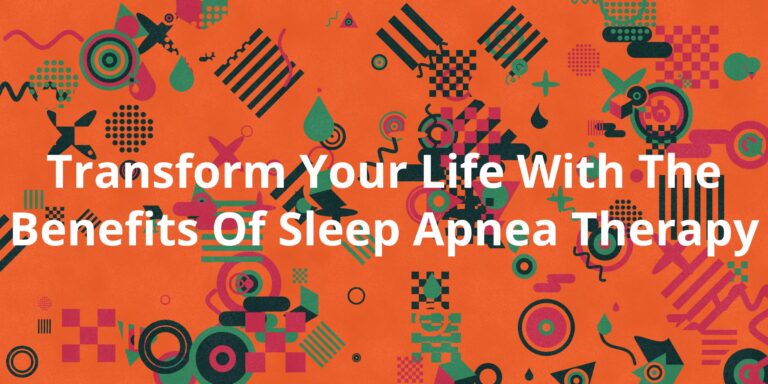Sleep apnea is a common sleep disorder that can cause difficulty breathing while sleeping. It affects millions of people worldwide, with some estimates putting the number at over 20 million in the United States alone. While it may seem like a minor issue, sleep apnea can have serious consequences on overall health and quality of life.
The most common type of sleep apnea is obstructive sleep apnea, where the airways become blocked or narrowed during sleep, making it difficult to breathe. This can lead to loud snoring, gasping for air, and even waking up suddenly in a panic. Other types of sleep apnea include central sleep apnea, where the brain does not signal the muscles to breathe properly, and mixed sleep apnea, which combines the two.
The good news is that there are many effective treatments for sleep apnea, including lifestyle changes, medical devices, and even surgery in some cases. In this article, we will explore some of the most common symptoms of sleep apnea, the causes behind it, and the various treatment options available to help you conquer your sleep apnea and enjoy a restful life.
Symptoms of Sleep Apnea
The most common symptom of sleep apnea is excessive snoring, which can be loud and disruptive to others in the room. Gasping for air or waking up suddenly in a panic are also common symptoms. Other signs that you may have sleep apnea include:
* Difficulty breathing while sleeping
* Lack of energy during the day
* Headaches or migraines
* Mood swings or irritability
* Memory problems or difficulty concentrating
Causes of Sleep Apnea
Sleep apnea can be caused by a variety of factors, including:
* Excess weight: Being overweight or obese can put additional pressure on the airways, making it difficult to breathe during sleep.
* Age: Sleep apnea is more common in middle-aged and older adults, particularly men.
* Genetics: Some people are more likely to develop sleep apnea due to their family history.
* Smoking: Smoking can irritate the airways and make them swell, making it harder to breathe during sleep.
* Alcohol consumption: Drinking alcohol before bedtime can relax the muscles in your throat, causing the airways to narrow or become blocked.
Treatment Options for Sleep Apnea
There are many effective treatments for sleep apnea, including:
1. Lifestyle changes: Losing weight, quitting smoking, and reducing alcohol consumption can all help alleviate symptoms of sleep apnea.
2. Medical devices: Continuous positive airway pressure (CPAP) is a device that delivers pressurized air through a mask to keep the airways open during sleep. Oral appliances can also be used to keep the airways open and prevent the tongue from falling back into the throat.
3. Surgery: In some cases, surgery may be necessary to correct structural issues in the airways or remove excess tissue that is blocking the passageway.
4. Medication: Certain medications can help relax the muscles in the throat and improve breathing during sleep.
Conclusion
Sleep apnea is a common disorder that can have serious consequences on overall health and quality of life. However, with proper treatment and lifestyle changes, it is possible to conquer your sleep apnea and enjoy a restful night’s sleep. If you suspect that you may have sleep apnea, it is important to speak with your healthcare provider and explore the various treatment options available to you. With the right support, you can breathe easy and wake up feeling refreshed and renewed every morning.



